Hospital develops iPhone app to screen for postpartum depression
The app was developed by researchers at a Massachusetts hospital.
— -- Women now have a new tool to screen themselves for postpartum depression and it fits in the palm of their hand.
Researchers at Massachusetts General Hospital in Boston have developed a free iPhone app for woman to use during and after pregnancy to see where they fall on the spectrum of the symptoms of postpartum depression.
"We view this as so intuitive from a public health point of view given the prevalence of postpartum depression in the population," Dr. Lee S. Cohen, director of the hospital’s Ammon-Pinizzotto Center for Women’s Mental Health and professor of psychiatry at Harvard Medical School, told ABC News. "Using apps is part of the fabric of people's day to day lives."
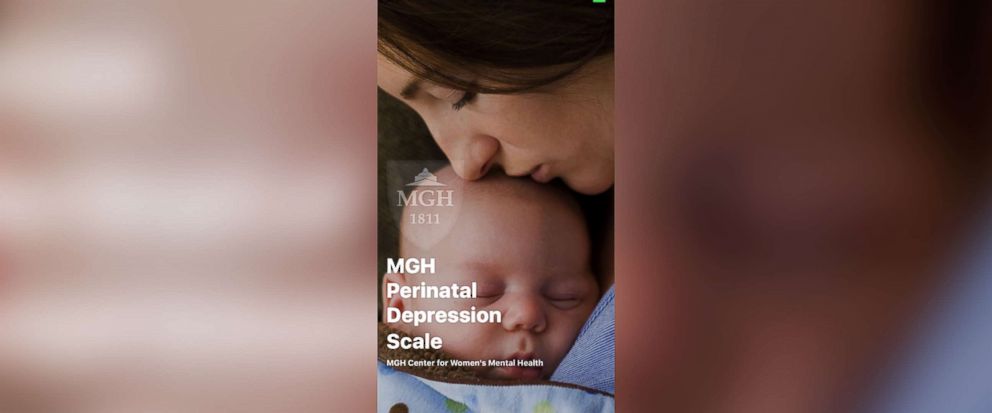
He explained, "A woman can fill out a screen, see what the score is and get a prompt about the result and then have a resource page on the app to help them."
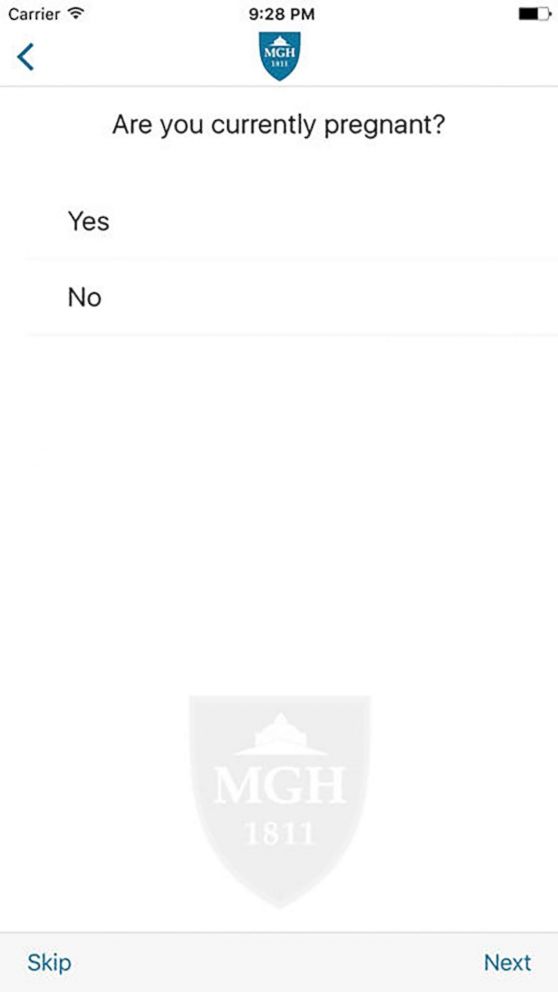
The hospital’s Perinatal Depression Scale (MGHPDS) features questionnaires about mood, anxiety, sleep and stress that identify symptoms most critical in diagnosing women with postpartum depression ages 18 to 45, Massachusetts General said in a news release Tuesday.
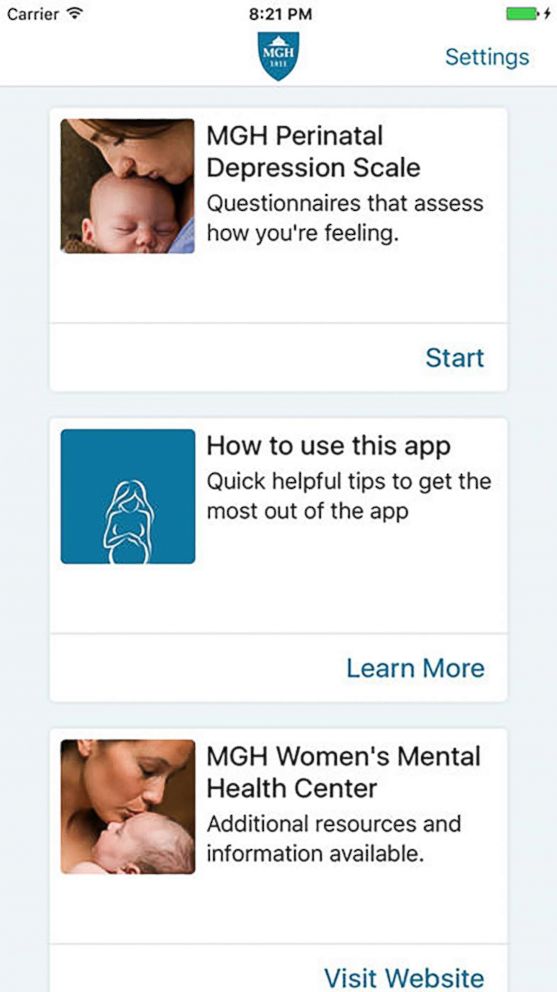
The app utilizes common screening tools like the Edinburgh Postpartum Depression Scale (a 10-question self-rating scale), but also includes additional targeted questions about symptoms like anxiety, insomnia and perceived stress, Cohen said.
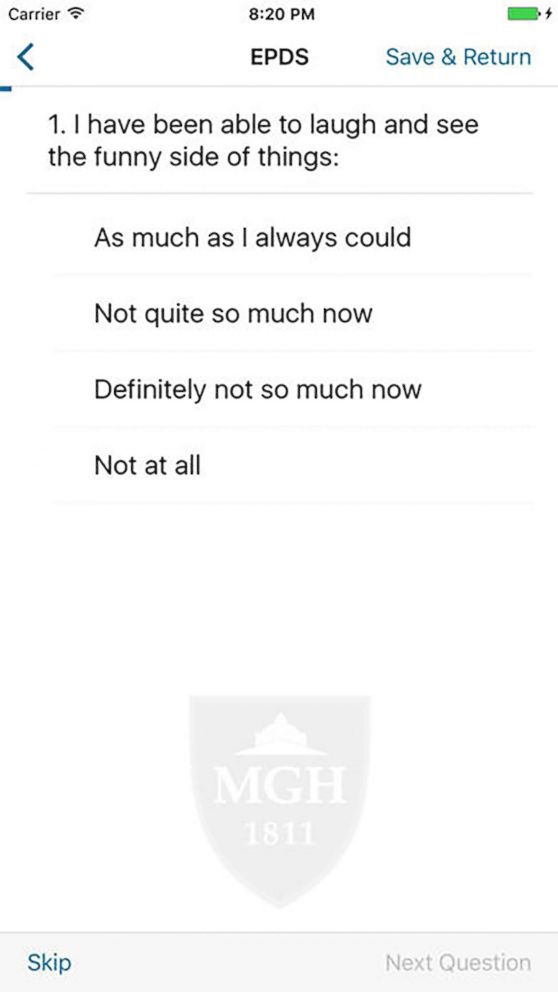
About one in nine women experiences postpartum depression, according to the U.S. Centers for Disease Control and Prevention.
First daughter Ivanka Trump revealed in an interview last month that she struggled with postpartum depression after giving birth to each of her three children.
"I consider myself a very hard-charging person; I'm ambitious, I'm passionate, I'm driven," Trump, 35, told Dr. Mehmet Oz. "But this is something that affects parents all over the country."
Other celebrities including Alanis Morissette and Chrissy Teigen have also been vocal about their struggles with postpartum depression, which experts say can last up to a year after a child's birth.
"I looked at my doctor, and my eyes welled up because I was so tired of being in pain ... Of not having the energy to take my baby for a stroll," Teigen, who gave birth to daughter Luna in April 2016. wrote in Glamour magazine. "My doctor pulled out a book and started listing symptoms. And I was like, 'Yep, yep, yep.' I got my diagnosis: postpartum depression and anxiety."
Postpartum depression does not have a single cause but its symptoms can be linked to sleep deprivation while recovering from giving birth, as well as chemical changes in a woman's brain that may trigger mood swings, according to the National Institutes of Health (NIH).
The app was developed by a team of researchers at the hospital’s Ammon-Pinizzotto Center. It was funded entirely by an anonymous donor described by Cohen as a "grateful patient" who wanted to fund initiatives for depression in women.
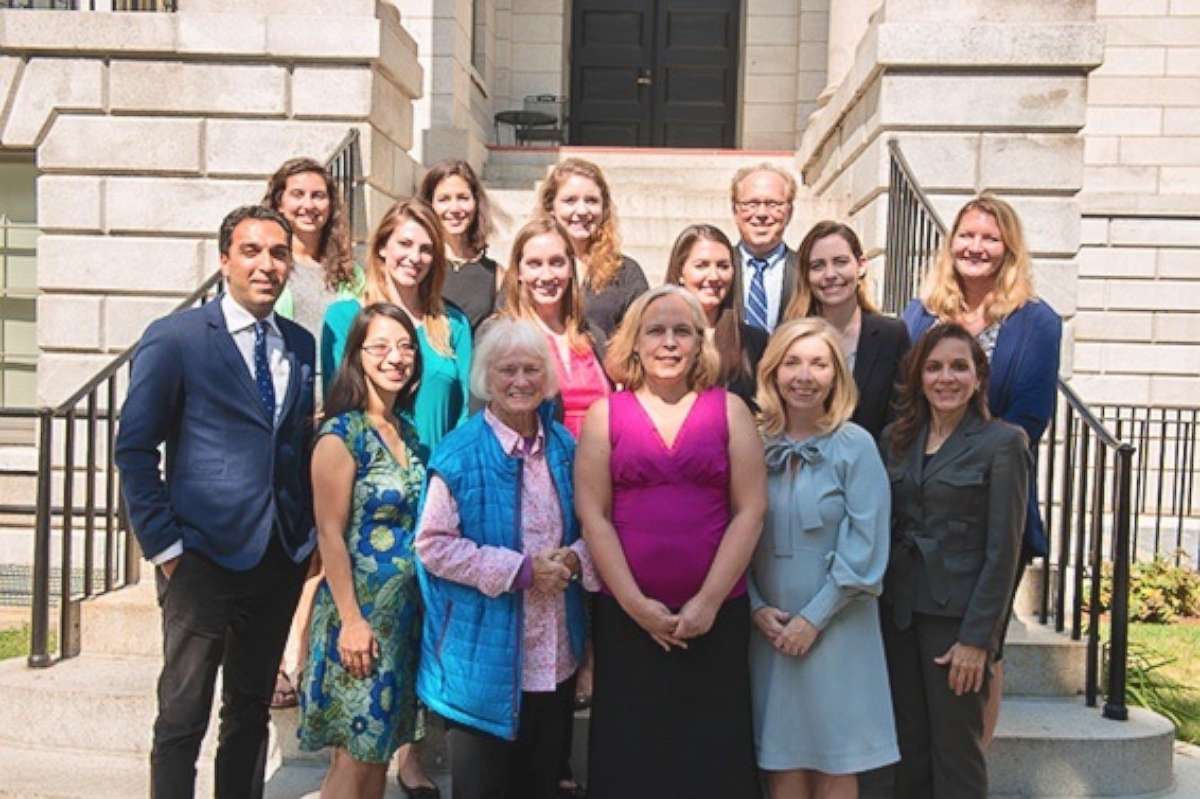
"It was a family just saying, 'Thank you,'" Cohen said of the funding for the nearly two-year project. "It was very inspiring to us and really galvanized our team to bring it home and to make it worth their investment."
Women using the app have the option to give their consent to allow their data to be used for research. Cohen and his team hope to use the data to further refine the screening process, offer mental health resources on the app and make it easier to identify the likelihood of postpartum depression earlier in pregnancy.
An Android version of the app is expected to launch later this fall.
For more information on postpartum depression and other conditions that affect mental health, go to MentalHealth.gov.




